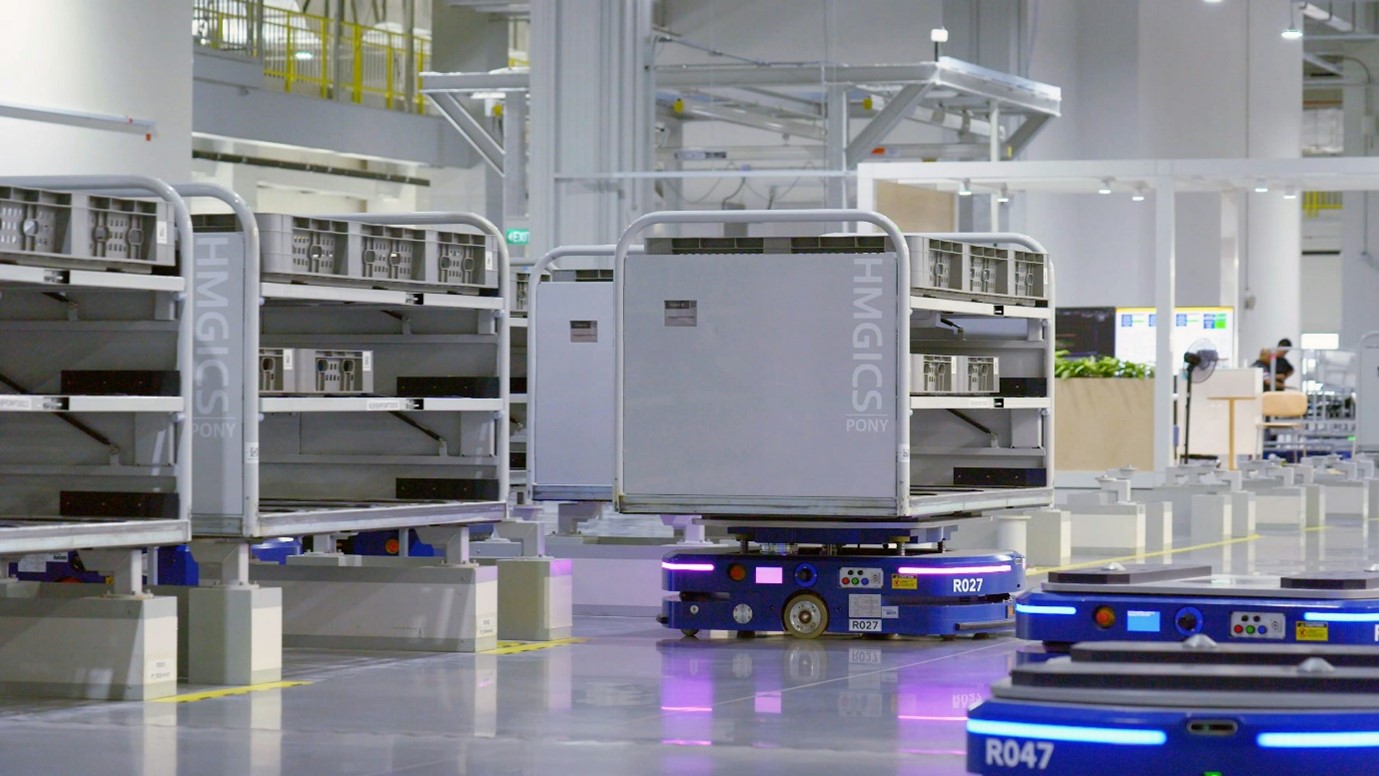Are we ready to embrace a future with smart logistics??
15/03/2025, Zerynth, Italy
Smart logistics is no longer a futuristic concept—it is a necessity for businesses, societies, and the environment. In a world that is rapidly evolving, where markets shift unexpectedly, and global disruptions can alter supply chains overnight, logistics plays a more crucial role than ever before. Smart logistics is not just about optimizing costs and increasing efficiency—it is about ensuring that goods reach their intended destinations in the right quantities, at the right time, in a sustainable and socially responsible manner.
A Foundation for Economic Stability
Supply chains are the backbone of the global economy. Efficient logistics enable businesses to function seamlessly, prevent waste, and maximize resource utilization. When disruptions occur—such as the COVID-19 pandemic, geopolitical conflicts, or natural disasters—smart logistics systems can provide the agility needed to adapt to new challenges quickly.
Companies and industries depend on well-structured logistics networks to avoid production slowdowns, maintain inventory balance, and meet consumer demand. The ability to anticipate supply fluctuations and optimize routes ensures stability in an increasingly uncertain economic landscape.
Sustainability and Environmental Responsibility
Traditional logistics models contribute significantly to global carbon emissions, waste production, and resource overconsumption. Smart logistics, however, integrates cutting-edge technologies to minimize environmental impact while maintaining operational efficiency.
For example:
- AI-driven route optimization reduces unnecessary fuel consumption and emissions.
- IoT-enabled fleet management ensures efficient vehicle use and predictive maintenance, reducing waste and downtime.
- Smart warehouses powered by automation and data analytics lower energy consumption and improve space utilization.
- Blockchain technology enhances transparency in supply chains, reducing inefficiencies and promoting sustainable sourcing practices.
By implementing these innovations, logistics becomes a key driver in the transition to a greener, more responsible global economy.
Ensuring Availability and Social Equity
Beyond business efficiency and environmental concerns, smart logistics has a significant social impact. A well-structured supply chain ensures that essential goods—such as food, medicine, and emergency supplies—are available where and when they are needed.
During crises, whether caused by climate disasters or pandemics, logistics systems must be flexible enough to reroute supplies quickly to affected regions. The combination of real-time data, AI-driven forecasting, and advanced automation allows supply networks to function dynamically, adapting to urgent needs without compromising long-term efficiency.
The unpredictability of modern markets necessitates logistics systems that are both resilient and agile. With globalization and digital transformation, consumer expectations have shifted—next-day or even same-day delivery has become the norm. E-commerce giants rely on smart logistics to meet these demands, utilizing AI-powered forecasting and robotic process automation to manage stock levels dynamically.
Similarly, industries such as healthcare, manufacturing, and agriculture depend on real-time logistics networks to prevent delays and maintain the quality of perishable or sensitive goods. By leveraging data-driven decision-making, businesses can avoid bottlenecks, anticipate disruptions, and pivot strategies proactively.
While smart logistics offers numerous benefits, there are challenges to consider:
- High implementation costs: Integrating advanced technologies requires significant investment in infrastructure and training.
- Data security concerns: Increased reliance on digital platforms raises cybersecurity risks.
- Regulatory hurdles: Compliance with international laws and sustainability standards can be complex.
However, the opportunities far outweigh the challenges. As technologies continue to evolve, logistics will become even more intelligent, sustainable, and responsive to global needs.

Let’s put light on the key technologies powering smart logistics today.
1. Artificial Intelligence and Machine Learning
AI and machine learning are transforming logistics by enabling predictive analytics, route optimization, and demand forecasting. AI-powered algorithms analyze historical data and real-time trends to adjust supply chains dynamically, reducing inefficiencies and enhancing delivery speed.
2. Internet of Things (IoT)
IoT sensors provide real-time tracking of shipments, allowing logistics operators to monitor conditions such as temperature, humidity, and location. This is particularly crucial for industries like pharmaceuticals and food, where maintaining the integrity of products is essential.
3. Blockchain for Transparency and Security
Blockchain technology enhances the transparency of supply chains by recording every transaction securely and immutably. This reduces fraud, ensures ethical sourcing, and streamlines compliance with regulatory requirements.
4. Autonomous Vehicles and Drones
The rise of autonomous trucks and drone delivery systems is revolutionizing last-mile logistics. These innovations help reduce delivery times, lower costs, and decrease reliance on human labor, making logistics more efficient and scalable.
5. Robotics and Automation in Warehousing
Automated storage and retrieval systems (ASRS), robotic picking solutions, and AI-powered inventory management are optimizing warehouse operations. This leads to faster order fulfillment, reduced labor costs, and increased efficiency in distribution centers.


